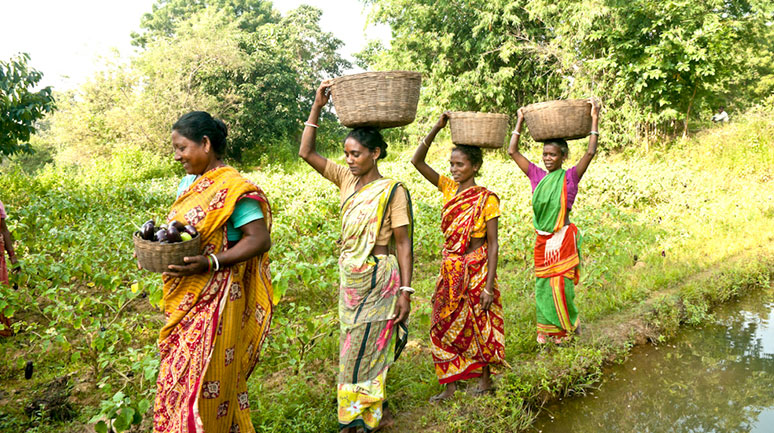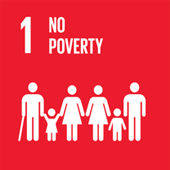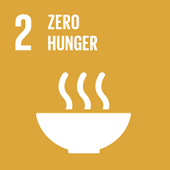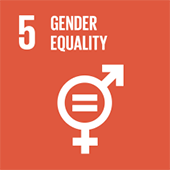
Improving Livelihoods with Innovative Cropping Systems on the East India Plateau
Problem Statement and Background
The persistent food insecurity, low crop productivity and mono-cropping under rain-fed farming practice have become the perennial challenge for the farming community of East India Plateau (EIP). Relatively new but largely practiced transplanting method of rice production has become increasingly risky in need of water for raising nursery and performing transplantation operation due to lack of irrigation and erratic nature of monsoon leaving the farmers more vulnerable. Additionally, with respect to the knowledge economy, for many, particularly women, access to knowledge is limited as is their capability to apply any new knowledge they are presented with.
This project was developed to improve the understanding of and address the above challenges to develop climate-resilient innovative cropping system on the EIP and to enhance the engagement and decision making of (women) farmers in farms, especially in research. An agricultural research for development project supported by the Australian Centre for International Agricultural Research (ACIAR) and the Department of Foreign Affairs and Trade (DFAT) was carried out in collaboration with PRADAN in the three research locations of Ramgarh, West Singhbhum and Purulia districts.



Status
The detailed report is available. Dissemination was completed and papers are in the process of being written/published. ACIAR agreed that the project team could use these funds (no cost-extension) to conduct several ‘synthesis’ meetings in India and publish project results in relevant formats.
Project Team
Smallholder farmers from three research locations as researchers, Researchers from Western Sydney University, who subsequently shifted to University of Queensland, Charles Sturt University (CSU), University of Adelaide, Bidhan Chandra Krishi Vishwavidyalaya (BCKV), World Vegetable Centre, ACWADAM, and researchers and development professionals from PRADAN.
Aim and objectives
The overall project aim was to improve livelihoods by enabling local smallholder farmers to develop flexible and responsive cropping systems that better utilise available water resources, thereby building resilience to climate change/variability at the household level. The project combined rural development objectives with agricultural research objectives to fulfil its aim.
Methodology
The project being a complex one recognized the need for a plurality of methodologies which kept evolving. The project adopted a unique farmer-focused research methodology drawing complementary approaches such as Participatory Action Research (PAR), Agricultural Research for Development (AR4D), systems thinking, transdisciplinarity and collective or social learning theories.
Instruments/Tools
Within the broad farmer-focused approach, appropriate methods were applied such as: groundwater research involved regular monitoring of a network of wells combined with automatic weather stations; agronomic research implemented a paired treatment experimental design; research on learning applied qualitative tools based on semi-structured interviews and focus group discussions to understand farmers’ and other stakeholders’ perspectives in depth.
Outputs/Outcomes
Project outputs and outcomes can be placed into four broad categories:
- Component farming technologies such as innovative and easy to use manual tillage implements, weed management practices etc.
- Project explored innovative cropping systems such as short-duration Direct Seeded Rice, trellis systems for climbing vegetables, and new rotations like maize/bean intercrop followed by mustard crop.
- The project encouraged women to view themselves not as secondary players in the agricultural sector but as principal farmers, researchers, teachers and active agents of social change
- Innovative learning systems for farmers and other team members such as crop planning calendars, a smartphone App for analysing climate variability for cropping decisions, and engaging farmers as research partners
Project impacts are long-lasting and are described in detail in the project report and the articles and papers published.
Some highlights of the project:
- Two symposiums on Transformation for Rural Development were held in 2015 and 2016, in Delhi, in collaboration with CSU and Ambedkar University, Delhi. A virtual hub was developed in these two symposiums. The hub was aimed to be a virtual network of activists, practitioners, academics, researchers and students to explore ways to be meaningful to farmers, collectives including Self-Help Groups (SHGs) and members of the wider communities.
- Knowledge sharing workshop was held at the Birsa Agricultural University, Ranchi in 2016. Scientists, researchers and practitioners working in the EIP presented their work and deliberated on the project’s findings. Research farmers from the three locations were also a part of the experience sharing sessions.
- Several exposure visits and trainings by the research farmers were conducted to share the learnings from the research to other farmers, villages, other PRADAN teams.
- Researchers from the project presented a paper at the 17th Australian Agronomy Conference held in Hobart, Australia in 2015
- Dissemination workshop in Ranchi attended by project members, PRADAN teams and development clusters, government officers, academics and researchers and other NGOs working in the EIP. Similar workshop held in Delhi with policymakers and interested NGOs
- A case study prepared by researchers from PRADAN was awarded runners up in the ‘Stories of change: Case study challenge’ organized by Azim Premji University.
- Several papers are written and are in the process of publishing by the researchers from the different organizations participating in the project well as in collaboration.
- Arundhita Bhanjdeo received a John Allwright Fellowship (Australia Awards) to do a PhD in project evaluation from Charles Sturt University.
- Creation of an Institute of Practice Change at CSU. The first conference was held in February 2019 where learnings from this research project were presented
Research Papers
![]() Learning, research and collaboration: challenges and opportunities
Learning, research and collaboration: challenges and opportunities
![]() Creating space for smallholder farmer innovation: Reflections from Australian researchers
Creating space for smallholder farmer innovation: Reflections from Australian researchers

